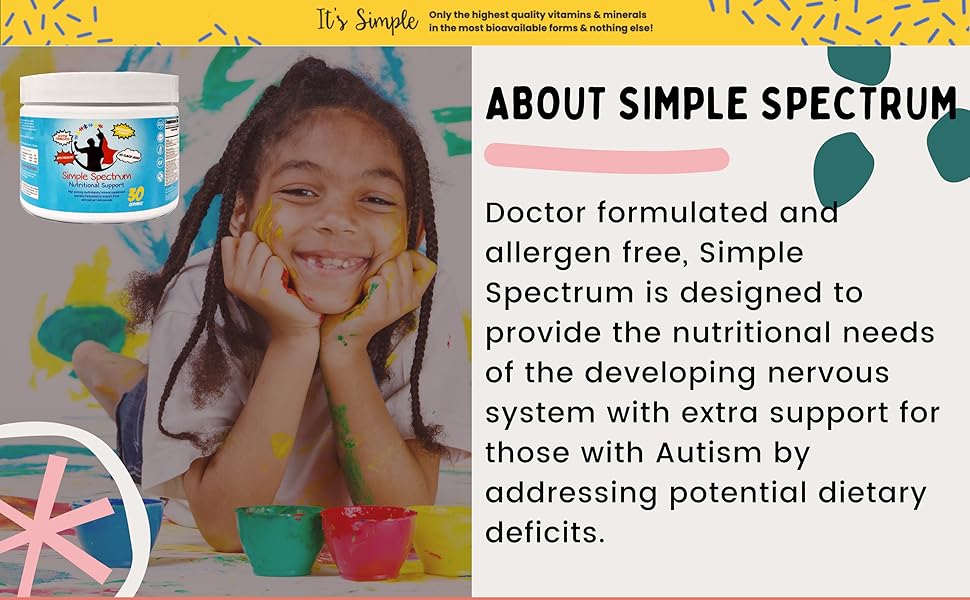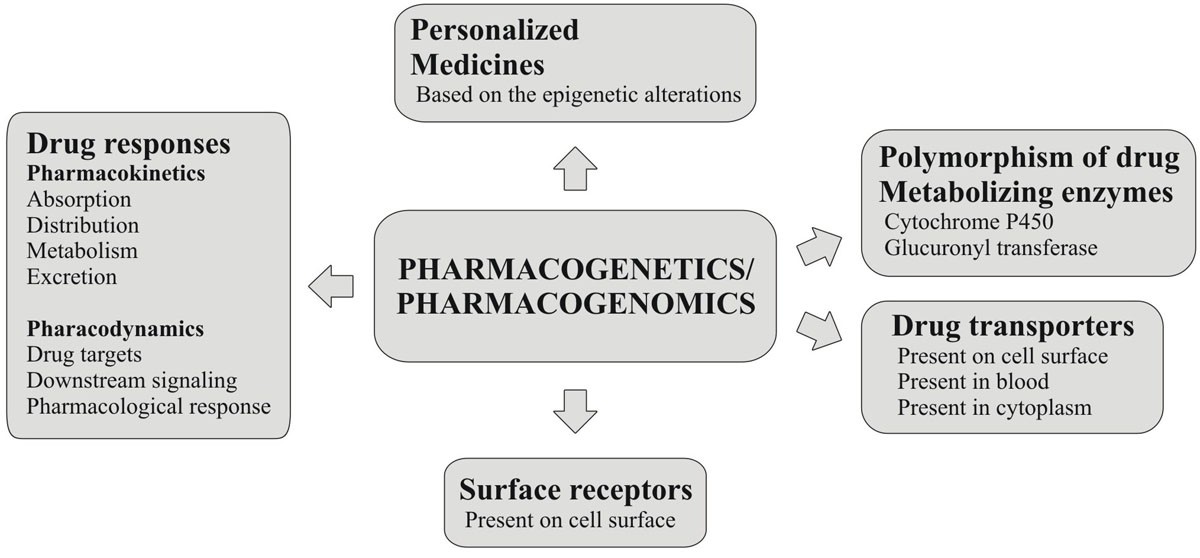HEALTH
The Importance of Medical Documentation for Your Well-Being

Understanding Medical Documentation
Medical documentation extends beyond mundane administrative duties; it forms the backbone of effective healthcare management, encompassing detailed recordings of a patient’s medical history. This provides invaluable insights not only for current healthcare needs but also for future healthcare decisions. It is a holistic record, capturing symptoms, diagnoses, treatments, and outcomes while offering a comprehensive view of the patient’s health journey. Meticulous documentation becomes crucial for individuals navigating complex support systems, such as veterans seeking VA disability compensation. The availability of precise records is indispensable in validating claims and securing much-needed resources, ultimately playing a critical role in achieving favorable outcomes. Moreover, comprehensive records empower healthcare providers to deliver informed and personalized care, allowing them to identify patterns, anticipate potential complications, and tailor treatments to each patient’s specific needs.
By presenting a detailed patient profile, medical documentation fosters a shared understanding between patients and healthcare providers, enhancing trust and facilitating informed, collaborative decision-making in treatment plans. This shared understanding is crucial for navigating the complexities of healthcare, where clear, ongoing communication and documented evidence support effective care strategies.
Accurate Records and Your Health
Accuracy in medical documentation is crucial for ensuring effective patient care. Precise records provide a reliable framework for healthcare providers to make informed, tailored decisions directly impacting patient outcomes. Inaccuracies, mistakes, or omissions can lead to significant issues such as misunderstandings, misdiagnoses, or inappropriate treatments. These mistakes may jeopardize patient safety and result in inadequate treatment, which will ultimately have an impact on the patient’s health. Thus, the stakes associated with accurate medical documentation are incredibly high. Healthcare providers rely on these records to devise care plans that align precisely with the patient’s condition. Such precision nurtures a holistic and responsive healthcare approach, improving overall health outcomes and patient satisfaction. By ensuring the integrity of medical records, patients and practitioners can trust the foundation upon which healthcare decisions are made.
Accurate medical documentation extends beyond clinical settings and is also fundamental in legal and insurance contexts, where the integrity of records can substantiate claims affecting coverage and liability. This accuracy reinforces effective care and protects patients’ rights, ensuring they have access to the necessary treatments and services.
Documentation and Healthcare Communication
An climate of collaboration for patient care is fostered by accurate medical recording, which is an essential communication tool among healthcare providers. When healthcare professionals have access to a patient’s complete and accurate medical record, it allows for a shared understanding of the patient’s health status and past treatments, which is crucial for seamless coordination and continuity of care. This is especially important when patients transition between different providers or healthcare facilities, ensuring that new providers are fully informed of the patient’s medical background and ongoing care needs. Consequently, this consistency in communication minimizes the risk of redundant testing or conflicting treatments, thereby protecting the patient from unnecessary procedures and potential errors.
Effective communication through medical records enhances interdisciplinary collaboration and combines diverse expertise and perspectives to optimize patient care plans. As healthcare becomes increasingly complex, these records serve as a critical repository of information, empowering teams to make well-founded, collective decisions that contribute to improved patient outcomes.
Continuity of Care and Comprehensive Records
Comprehensive medical records are vital in ensuring continuity of care. They encapsulate a patient’s medical timeline that chronicles each interaction, diagnosis, treatment, and response. This timeline enables future providers to continue care without interruption, sustaining the treatment momentum and fostering a comprehensive healthcare narrative. Patients benefit immensely from this continuity, as it enhances treatment efficacy and ensures a coherent health trajectory, ultimately empowering them with consistent support throughout their healthcare journey.
In addition to sustaining effective care, continuity based on complete records is essential for patient safety. By maintaining a thorough and updated record, healthcare providers can avoid adverse interactions or omissions that could compromise patient welfare.
Resources for Patients
A wealth of resources is available to assist patients in understanding and improving their medical documentation. Patient advocacy groups and online platforms offer valuable tools and guides that empower individuals to manage their health records actively. By using these resources to become knowledgeable participants in their healthcare journeys, patients can improve documentation accuracy and ensure that their medical records appropriately reflect their health requirements.
Understanding the standards and practices of medical documentation instills confidence, enabling patients to engage constructively with healthcare providers and advocate for clarity and precision in their health records. This empowerment, fostered through accessible resources, positions patients to take a proactive approach to their healthcare, ultimately supporting better health outcomes and facilitating a collaborative partnership with healthcare providers.
HEALTH
Spectrum Multivitamin: Nutrition for Child Development

As parents, making sure our children get the right nutrients for their growth and development is a top priority. Multivitamins play a crucial role in filling nutritional gaps, especially for picky eaters or those with dietary restrictions. Spectrum multivitamin is designed to provide essential nutrients that support a child’s overall development, making it a helpful part of their daily routine.
The spectrum multivitamin is full of different vitamins and minerals that are essential for children’s health. These nutrients help with growth, boost the immune system, and improve brain function. In the sections that follow, we will explore the unique benefits of spectrum multivitamin for kids, the role of spectrum vitamins and minerals, and how to choose the right multivitamin for your child.
Why Choose Spectrum Multivitamin for Kids?
Choosing the right multivitamin for your child can be overwhelming, but spectrum multivitamin has several benefits that make it a great choice:
- Tailored for Children: Spectrum multivitamins are specifically formulated to meet the nutritional needs of growing children, ensuring they receive the right balance of vitamins and minerals.
- Supports Growth and Development: These multivitamins contain essential nutrients like calcium, vitamin D, and iron, which are crucial for bone health and cognitive development.
- Boosts Immune System: With vitamins like C and E, spectrum multivitamins help strengthen the immune system, keeping children healthier and more resilient to common illnesses.
According to WebMD, multivitamins can fill nutritional gaps and provide a safety net for essential nutrients that might be missing from a child’s diet. This is particularly important during growth spurts when their nutritional needs are higher.
Understanding Spectrum Vitamins and Minerals
Spectrum vitamins and minerals are important parts of a balanced diet, especially for children. These nutrients help with body functions and overall health. Spectrum vitamins include a wide range of vitamins such as A, B, C, D, and E, each contributing to different aspects of health. Minerals like calcium, iron, and magnesium are equally important, aiding in bone development, oxygen transportation, and energy production.
For children, having a diet rich in these vitamins and minerals is important for their growth. According to Harvard’s Nutrition Source, these nutrients help in building strong bones, boosting the immune system, and supporting brain development. Ensuring that children receive the right amount of spectrum vitamins and minerals can make a significant difference in their health and development.
Simple Spectrum Multivitamin: A Comprehensive Solution
The simple spectrum multivitamin provides a full solution for children’s nutrition needs. It is made to give a balanced mix of important vitamins and minerals just for kids. This formulation ensures that children receive the nutrients they need for optimal growth and development.
Some of the features that set the simple spectrum multivitamin apart include:
- Balanced Nutrient Profile: It contains a well-rounded mix of vitamins and minerals that cater to the specific needs of children.
- Easy to Digest: Formulated to be gentle on the stomach, making it suitable for daily use.
- Supports Overall Health: Helps in boosting immunity, enhancing cognitive function, and promoting strong bones.
Choosing a simple spectrum multivitamin can be a great step towards ensuring that your child receives all the essential nutrients they need in their formative years, setting a foundation for a healthy future. For more information on these supplements, you can visit Simple Spectrum Supplement’s FAQ page.
Full Spectrum Vitamins and Support: Meeting All Nutritional Needs
When it comes to ensuring your child receives all the essential nutrients, full spectrum vitamins and spectrum support vitamins play an important role. These vitamins are designed to provide a comprehensive nutritional profile that supports overall health and well-being for children.
Here’s why full spectrum vitamins help:
- Comprehensive Nutritional Profile: Full spectrum vitamins cover a wide range of nutrients, ensuring that children receive all the essential vitamins and minerals they need for healthy development.
- Enhanced Health and Well-being: These vitamins support various bodily functions, from boosting the immune system to promoting strong bones and teeth.
- Balanced Diet Support: They help fill any nutritional gaps that might exist in a child’s diet, ensuring balanced growth.
Specific vitamins, such as vitamin D, calcium, and iron, are particularly important for child development. Full spectrum vitamins ensure these are adequately included, supporting everything from brain development to energy levels.
Choosing the Right Spectrum Needs Multivitamin
Finding the right spectrum needs multivitamin for your child can be a tough task. But with the right help, you can make a smart choice for your child’s health.
Here are some tips to consider when selecting a multivitamin:
- Check the Label: Ensure the multivitamin provides a comprehensive range of vitamins and minerals suitable for your child’s age.
- Consult a Healthcare Professional: Speak with a pediatrician or a nutritionist to understand your child’s specific nutritional needs.
- Look for Quality: Choose multivitamins from reputable brands that adhere to high manufacturing standards.
- Consider Dietary Restrictions: If your child has any allergies or dietary restrictions, ensure the multivitamin is free from allergens or unwanted ingredients.
For more information on choosing the right multivitamin, you can refer to resources like WebMD’s guide on selecting multivitamins.
The Benefits of Simple Spectrum Vitamin Supplement
Today, making sure children get all the nutrients they need can be hard. This is where a simple spectrum vitamin supplement can make a significant difference. Here are some benefits:
- Fills Nutritional Gaps: Even with a balanced diet, children may miss out on essential nutrients. A simple spectrum vitamin supplement can help bridge these gaps, ensuring they receive a comprehensive range of vitamins and minerals.
- Supports Growth and Development: These supplements are formulated to support the physical and mental development of children, promoting healthy growth.
- Easy to Incorporate: Simple spectrum vitamin supplements are designed to be easy for children to take, whether in chewable form or as a liquid, making them a convenient addition to daily routines.
- Boosts Immune System: By providing essential nutrients, these supplements can help strengthen the immune system, keeping children healthier and more resilient.
Final Thoughts: The Importance of Spectrum Multivitamin
In summary, spectrum multivitamins provide a full solution to help your child’s health, growth, and development. By incorporating these into their daily routine, you can help ensure they receive the nutrients they need to thrive. They give all the important nutrients that can be hard to get from just food. They support both physical growth and cognitive development, crucial during childhood, and help maintain a balanced diet, which is vital for long-term health.
As parents, it’s important to consider the nutritional needs of your children carefully. By integrating spectrum multivitamins, you can support their development and set them on a path to a healthier future.
HEALTH
Personalized Medicine: The Role of Pharmacokinetics

Personalized Medicine in Modern Healthcare
Personalized medicine is a crucial aspect of modern healthcare. It utilizes personal data to create tailored treatment programs for each patient. This strategy deviates from the conventional “one-size-fits-all” approach by considering environmental, lifestyle, and hereditary factors to enhance therapeutic results and reduce potential adverse effects.
One critical component of this approach is clinical Pharmacokinetics New York, which examines how a drug moves through the body, predicting its absorption, distribution, metabolism, and excretion. Personalized medicine, a powerful tool in combating diseases worldwide, aims to improve efficacy, reduce unnecessary treatments, and enhance patient quality of life by tailoring drug regimens according to individual differences. Further insights can be gained from resources like the NIH’s comprehensive exploration of personalized medicine.
Understanding Pharmacokinetics
Pharmacokinetics, the study of how drugs are processed in the body, is fundamental to personalized therapy. It encompasses several critical processes: absorption, which determines how a drug is taken up into the bloodstream; distribution, which indicates how the drug spreads throughout the body’s tissues; metabolism, which transforms the drug into active or inactive substances; and excretion, which outlines how a drug or its metabolites are eliminated from the body.
By comprehending these processes, healthcare providers can predict how different patients will respond to medications, which is essential for tailoring drug choices and dosing. For instance, individuals may metabolize a drug at varying rates due to genetic differences. Recognizing these variations can prevent adverse reactions and improve therapeutic effectiveness. This accuracy ensures that patients receive the finest care possible. Further reading on the importance of pharmacokinetics can be found in the FDA’s detailed guide on pharmacokinetics and pharmacodynamics basics.
The Role of Pharmacogenomics
Pharmacogenomics is integral to personalized medicine, focusing on how genetic variation affects individual drug responses. By understanding genetic differences, healthcare providers can predict how well patients will respond to a particular medication or whether they might suffer adverse effects. This information makes it possible to create customized treatments considering metabolic and genetic variables affecting medication safety and effectiveness.
Pharmacogenomics has been successfully applied in various fields, such as oncology, where genetic testing helps determine the most effective chemotherapy regimen. In cardiology, genetic tests help identify the best anticoagulant therapy for individual patients. These applications underscore the transformative potential of integrating pharmacogenomics with pharmacokinetics, paving the way for safer, more effective personalized therapies.
Current Challenges and Limitations
Despite personalized medicine’s potential, several barriers remain. The cost of developing and administering tailored therapies can be prohibitive, placing financial strain on healthcare systems and patients. Furthermore, the complexity of interpreting genetic data requires specialized knowledge and resources, limiting widespread implementation.
Moreover, ethical and regulatory challenges must be addressed, particularly concerning the privacy and security of genetic data. Patients and providers express concerns about how this sensitive information is used and shared. Balancing these concerns with the benefits of personalized medicine is crucial for its successful incorporation into routine healthcare practice.
Innovations Driving Change
Technological advancements are fueling the progression of personalized medicine. Innovations in drug monitoring and delivery systems enable more precise control of medication regimens, allowing for real-time adjustments based on patient responses. Artificial intelligence and machine learning are also increasingly used to improve treatment plans, predict how patients react to medications, and improve healthcare outcomes.
These technologies offer the potential to make personalized medicine more accessible and practical, streamlining the process of developing and delivering individualized treatment plans. As these innovations continue to evolve, they are expected to play a critical role in the widespread adoption and success of personalized medicine.
Implications for Patients and Healthcare Providers
The rise of personalized medicine empowers patients by involving them more actively in their healthcare decisions. By tailoring treatments to individual needs, customized medicine encourages greater adherence to medication protocols and enhances patient engagement. When patients comprehend how their treatment programs address their unique problems and concerns, they are likelier to stick with them.
For healthcare providers, adopting personalized medicine necessitates updates in practice guidelines and ongoing education to ensure competency in genetic testing and data interpretation. This shift requires a collaborative approach, with healthcare teams working together to integrate new treatment models effectively.
The Future of Personalized Medicine
Personalized medicine can drastically change the healthcare industry as it develops. Future trends suggest a shift from broad-spectrum therapies to more targeted drug development, focusing on each patient’s unique biological characteristics.
Policy changes and increased investment in genetic research and technology will likely be necessary to support these advances. By ensuring fair access to individualized healthcare, such policies will promote a more effective and inclusive healthcare system that meets the various requirements of people worldwide.
Conclusion
In summary, personalized medicine, driven by the intricate science of pharmacokinetics, holds immense potential for improving patient care. Despite obstacles, this strategy’s continued advancement and use portends a new age in individualized care, providing hope for improved global health outcomes and a more adaptable healthcare system.
HEALTH
Tips for Choosing the Right Skilled Nursing Home for Your Loved One

Understanding Skilled Nursing Homes
Choosing the right skilled nursing facility Missouri is crucial for the well-being of seniors who need specialized medical attention and personal care. These facilities serve as vital support systems for those unable to live independently due to health limitations. Skilled nursing homes deliver services designed to meet urgent medical requirements and long-term care objectives; they offer comprehensive healthcare, not merely medical oversight.
This proactive and comprehensive care significantly enhances residents’ quality of life, giving families peace of mind as they entrust their loved ones to professional care.
Understanding the scope of services can be critical in the decision-making process. Most skilled nursing homes offer round-the-clock nursing care, personalized care plans, rehabilitation therapies, nutritional meals, and social activities. They aim to establish a nurturing setting where older adults receive essential medical attention and participate in fulfilling and enriching activities. By carefully examining these options, families can make educated choices, alleviating worries related to long-term care placements.
Factors to Consider When Choosing
- Location and Accessibility: Location frequently serves as a key criterion when choosing a nursing home. A conveniently located facility simplifies visits from family and friends. Regular interaction can significantly boost seniors’ spirits and emotional well-being, providing them with a sense of community and continuity. When evaluating location, consider the surrounding neighborhood—safety, accessibility, and proximity to emergency services should also weigh into your decision.
- Cost and Financial Planning: Financial considerations are often significant when exploring long-term care options. Understanding the costs associated with skilled nursing homes and the various resources available for financial assistance is vital. Many facilities provide financial counselors to help families break down costs and explore available options, ensuring they make informed and financially viable decisions.
- Services and Amenities: The range of services and amenities offered can vary significantly from one facility to another. Families should consider their loved ones’ requirements, including specialized medical care or tailored rehabilitation programs. Additionally, amenities like recreational activities, wellness programs, and even simple comforts like gardens or common areas can enhance the overall resident experience. By evaluating these elements, families ensure their loved ones stay engaged, active, and happy.
- Reputation and Accreditations: The standing of a nursing home can offer important information regarding the quality of care administered. Feedback from residents and their relatives through reviews and testimonials can provide authentic insights into everyday experiences. Moreover, healthcare facilities of well-known organizations follow strict quality and safety regulations, providing a greater degree of trust and dependability. Visiting these homes firsthand allows families to gauge the environment and culture, ensuring it aligns with their expectations and values.
Transitioning Into a Skilled Nursing Home
Transitioning to a skilled nursing home marks a significant life change for your loved one, requiring careful planning and emotional support. A seamless transition plan should involve clear communication between the family, the resident, and the care team to address any uncertainties or emotional hurdles. Personalized touches, such as incorporating familiar items like photographs or cherished keepsakes, can significantly improve the resident’s sense of belonging and comfort. Regular visits during the initial days can also reassure them that they remain an integral part of family life and are not isolated due to their change in living arrangements.
Involvement of Family and Friends
The support and involvement of family and friends play a pivotal role in the wellness and happiness of those in nursing homes. Regular interactions, through visits or calls, curate an environment where residents feel valued and supported. As noted in research by the National Library of Medicine, social connections significantly impact mental and emotional well-being, reinforcing the importance of maintaining strong relationships in long-term care settings. Active involvement in events organized by the facility can further help strengthen relationships and provide joyous shared experiences. This continuous bond acts as an emotional lifeline, offering residents a sense of stability and support, aiding in combating the feelings of loneliness or isolation often associated with institutional living.
Quality Care Indicators to Look For
Assessing the standard of care offered by a nursing home is crucial for safeguarding the well-being and joy of your loved one. Metrics such as the staff-to-resident ratio offer information regarding the extent of individualized attention given to each resident. Observing interactions between staff and residents can reveal much about the atmosphere and dynamics within the facility. A clean and well-maintained environment reflects a commitment to health and safety and contributes to an uplifting and positive living experience. Families should be motivated to inquire and clarify how the nursing home functions daily.
Communicating with Health Professionals
Effective communication with healthcare professionals within the facility is crucial for effectively managing your loved one’s care. This dialogue ensures that any changes in health or behavior are addressed promptly, leading to timely interventions. Families should schedule regular meetings with the care team to discuss care plans and provide input. These collaborative efforts result in personalized treatment plans that respect the individual needs and preferences of the resident, thereby enhancing their overall care experience and well-being.
Conclusion: Making the Right Choice
Ultimately, selecting the right skilled nursing home for your loved one is a multifaceted decision that requires careful consideration and evaluation. Resources like the National Institute on Aging, a guide on choosing a nursing home or other long-term care facility, can provide valuable insights to help families navigate this complex process. Families can make informed decisions by thoroughly researching options, considering crucial factors such as location, cost, and quality indicators, and maintaining open communication with their loved ones and healthcare professionals. Family participation and backing can significantly influence the lives of individuals in care, offering comfort through the knowledge that they are enveloped in love and kindness.
-

 BLOG1 month ago
BLOG1 month agoIZoneMedia360 .Com: Exploring the Features and Benefits
-

 BLOG5 months ago
BLOG5 months agoAbout Blog TurboGeekOrg: A Go-To Hub for Tech Enthusiasts and Latest Innovations
-

 BLOG5 months ago
BLOG5 months agoWhat is a Golden Transit in Magi Astrology?
-

 BLOG1 month ago
BLOG1 month agoA Complete Guide to ProcurementNation.com Shipping
-

 ENTERTAINMENT5 months ago
ENTERTAINMENT5 months agoTyquaez Pickett: A Rising Star in the Entertainment World
-

 NEWS1 month ago
NEWS1 month agoChloe Berger News: Insights on Employee Rights and Talent Retention
-

 HOME1 month ago
HOME1 month ago5StarsStocks.com Nickel: Invest for a Bright Future
-

 BLOG4 months ago
BLOG4 months agoWho Is Hall Sinclair? The True Story of Olivia Colman’s Son
